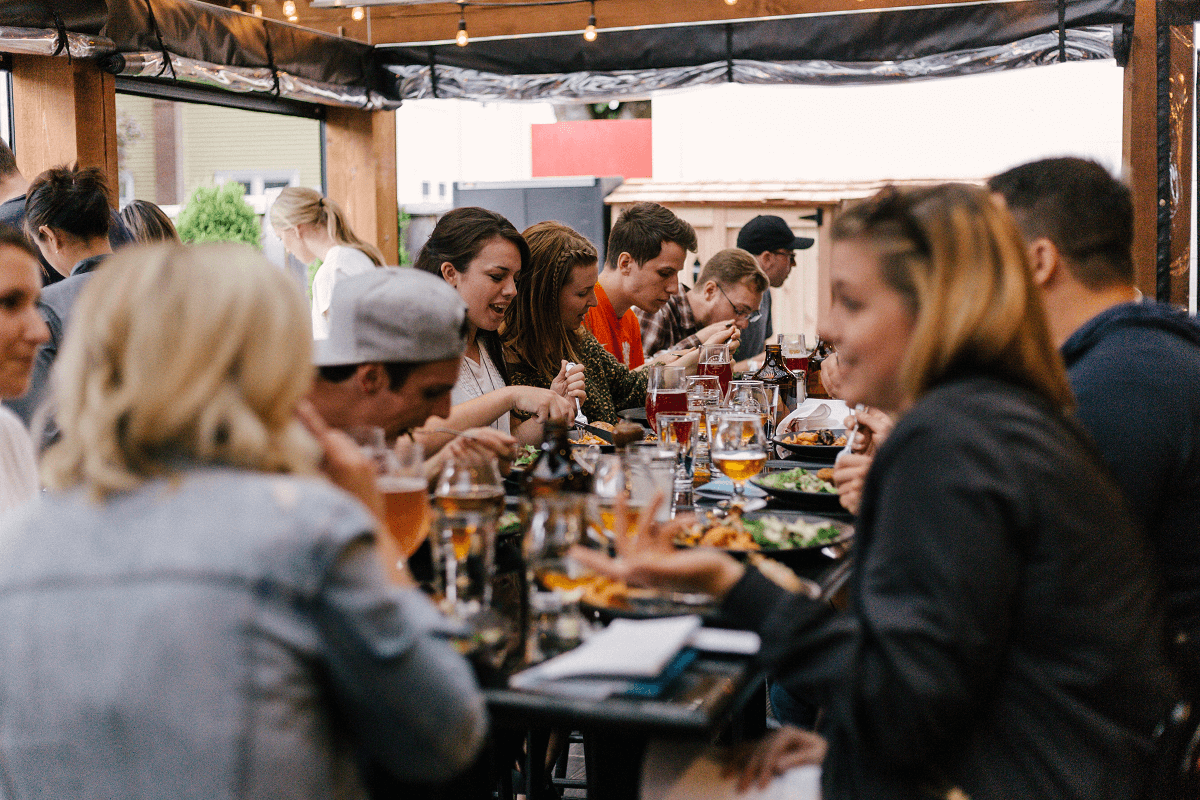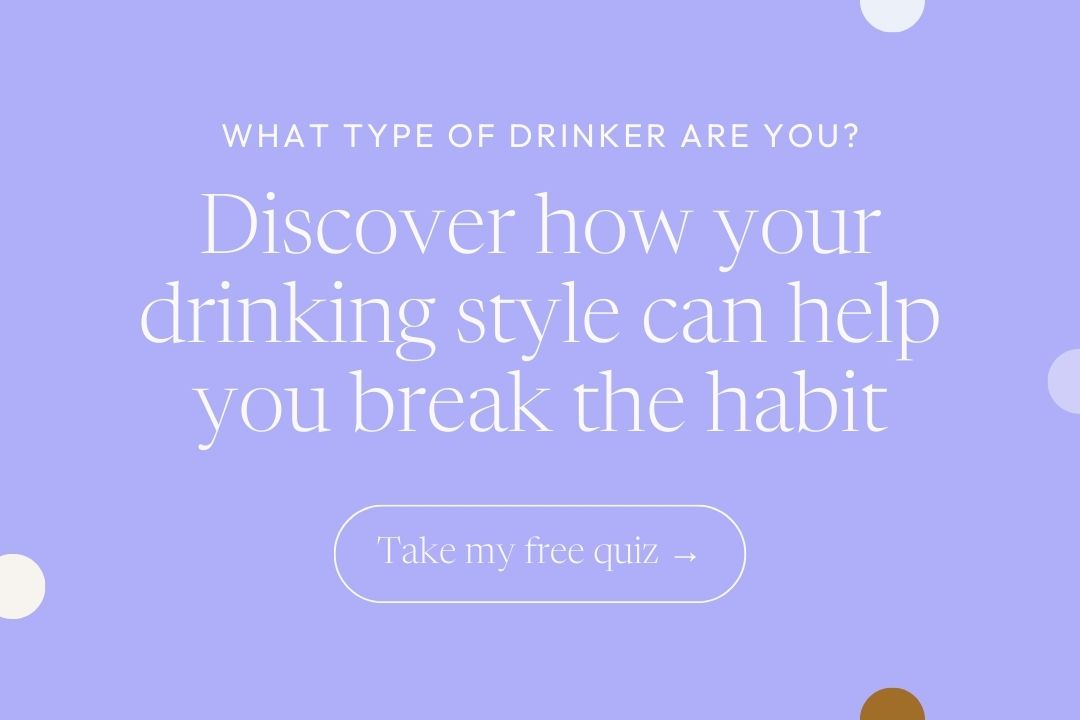14 months into an alcohol-free experiment, I’m thinking more and more about the relationships we have with alcohol and the sneaky way that social drinking can tip over into problem drinking without us even realising. And while everyone has a personal relationship with booze (and their own set of limits), you don’t have to go cold turkey cutting back on drinking to experience a profound impact on your health. If you’re interested in hearing more about my own experience, I speak a bit more about it in this podcast episode.
What is considered binge drinking?
Most of us know that binge-drinking effects are very real, but far fewer among us think it’s something we need to worry about in our own lives. Binge-drinking is only something you do in your early twenties, involving cheap cask wine and painful choices in both heels and love, right?
Well … it turns out, perhaps not.
According to the National Alcohol and Drug Knowledge Base (NADK), it’s classified as binge-drinking if you consume more than five standard drinks on any one ‘drinking occasion’. Considering an average pour of Sauv Blanc in your kitchen constitutes about 1.5 standard drinks, more than three glasses at a dinner party is suddenly tipping us into binge-y territory.
A bit uncomfortable to think about, no? I know it was for me.

How to create awareness around drinking habits
For me though, it’s not just a numbers game. I think a large component to understanding our relationship with alcohol is identifying the intention behind our drinking.
I know from my experience with binge-eating, that it’s as much about the ‘why’ as the ‘what’ when it comes to how we’re treating our bodies. And, just like intuitive or mindful eating, I believe that understanding can be the key to recovering from binge drinking.
The Notes section of your phone is a super-simple, effective way to keep track of your progress, so that when you reflect back you can easily see how many days you’ve been alcohol-free (or not), giving you even more reasons to stop drinking.
3 practical tips to stop binge drinking
I find if you want to reduce alcohol consumption, it helps to have a varied toolbox of ideas you can implement. Of course, not every tip is going to be right for every situation, but the idea is to be able to scaffold our decision making with as many tricks as possible.
1. Make your weekends alcohol-free
‘I only drink on weekends’ is often the catch-cry of the self-identified ‘moderate drinker’, and while it might be a useful tactic if you’re trying to bank more alcohol-free days in a row, studies show that ‘moderate’ drinkers who only drink on the weekends are actually more at risk of weekend binge-drinking.
Drawing a line in the sand and making weekends alcohol-free reduces the decision fatigue that can lead to binge-drinking behaviour, and as a bonus, opens up several bonus hours on a Sunday morning without a hangover!

2. Commit to staying under the legal limit
Another way to stop binge drinking? Offer your services as the designated driver.
When I stopped drinking, I thought remaining sober in social situations would make them less appealing, but a strange thing happened. Without the logistics of public transport or cabs, and figuring out how to plan around them, suddenly social situations seemed a lot simpler to say yes to.
As a bonus, I take the savings I’ve made on not buying drinks while I’m out and splurge on a premium parking spot. $35 for inner-city parking seems like a bargain when you weigh it up with how many cocktails I’m not buying!

3. Buy by the glass
How many nights out with the girls include some iteration of this conversation: ‘Well, I’m having white, and you’re having white, so should we just get the bottle? It works out cheaper!’
Binge drinking recovery is linked with your ability to be mindful about what you’re consuming, and sharing a bottle …then another … then another with the girlies is the antithesis to mindful drinking.
Making yourself solely responsible for how much booze is going in by intentionally sticking to the glass you purchase removes the margin of error. You know what you’re drinking, and better yet, you know exactly what your portion of the bill is going to be at the end of the night.
When and where to seek help
Trying to quit binge drinking can actually be the first time many of us sit back and think – woah, why do I drink so much? And that line of questioning can open a whole new can of worms and a deeper look at what might be going on for you.
If you want support or help with your drinking, there are SO MANY great resources – I’ve listed some of my favourites below.
- Your GP is a great place to start, from there she can refer you to local or online support services
- Drinkwise Australia has so many amazing resources – highly recommended!
- Alcoholics Anonymous have a confidential hotline you can call: 1300 222 222
- Headspace is a fabulous section of the internet that I find incredibly useful across the spectrum of mental and emotional issues.
Never stopped drinking alcohol long enough to experience life without it? Find the idea scary and overwhelming?
The legendary Maz Compton and I have created an easy-to-listen-to audio guide, helping you shift from waking up with hanxiety (and shame) to becoming your most energised self.
Click here and learn how to swap a handful of feel-good tipsy moments for a booze-free high that doesn’t wear off!